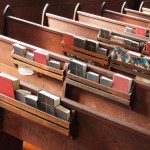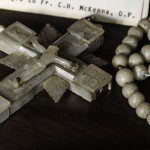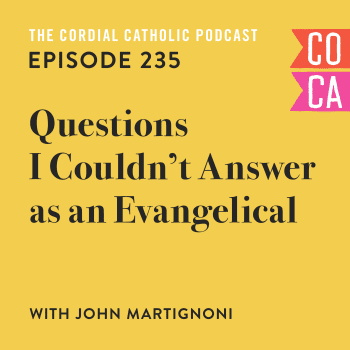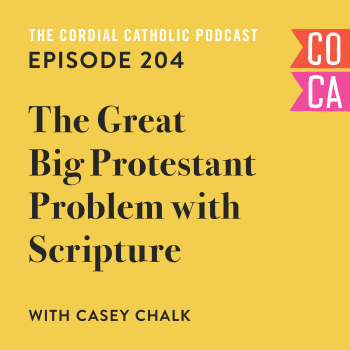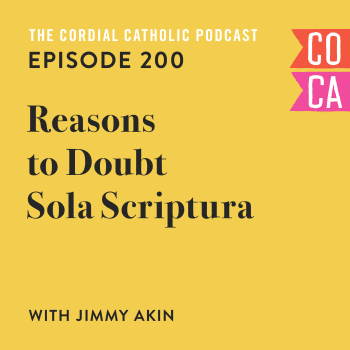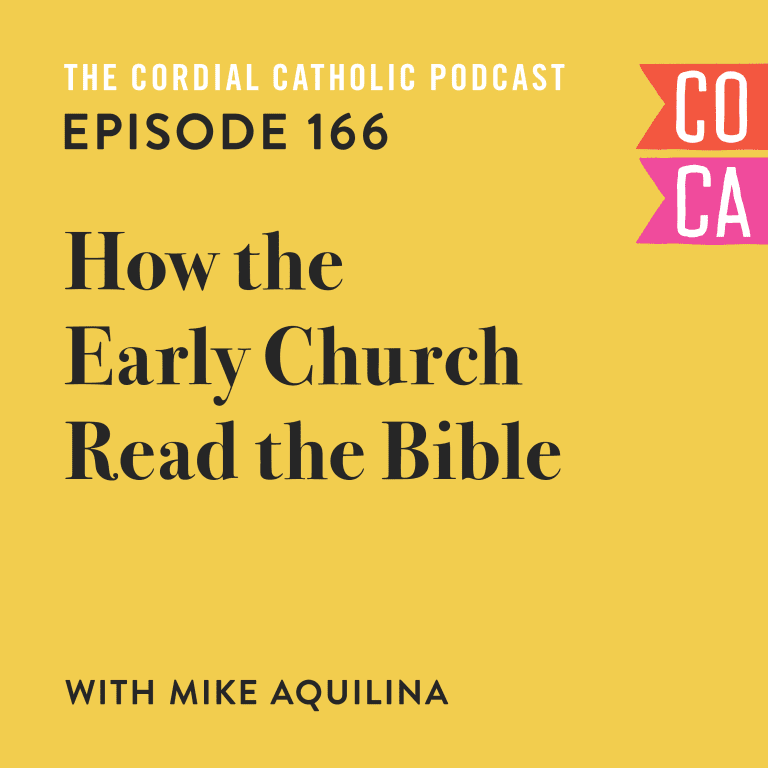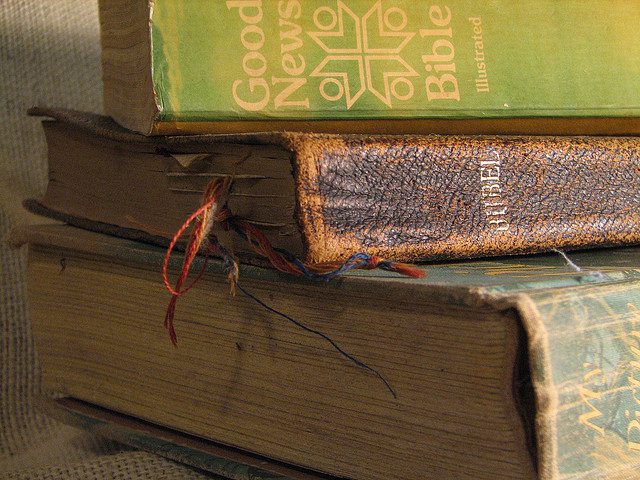
I’ve written a lot about sola scriptura, the Reformation belief that Scripture—the Bible—is the ultimate authority on matters of faith. I’ve written a lot about it because it’s been one of the primary drivers of my journey towards Catholicism.
In a nutshell, I don’t believe that a God who is who He says He is would leave each individual up to their own interpretation. (Yes, He left us the Holy Spirit but we still end up with a multitude of differing private interpretations.)
But, what about prima scriptura, the notion that Scripture is the most authoritative source on our faith but not the only authoritative source?
That’s an idea I can get behind, and one that the Catholic Church can, too.
A brief preface before the meat of the thing.
I would assert, cordially, of course, that you must have an interpreter of Scripture. Scripture, because it is written down, must be interpreted in some way. If I say to you, “The Blue Jays are the best team in baseball,” you could ask me myriad of follow-up questions (and probably come to the conclusion that I am, sadly, incorrect). Not so with the Scriptures. Since the Scriptures are written down and not expressed to you by their authors directly you cannot ask those authors follow-up questions. As much as we can daydream about being able to speak to Paul about precisely what he meant by his framework for justification we, sadly, cannot.
We interpret.
Most of us, but not all of us, do our best to interpret based on a number of factors and considerations. Some of the best Bible scholars, like N.T. Wright, set about a framework for interpretation that’s really quite robust. But, it’s a created interpretive framework, created by us.
The notion of sola scriptura is that the Bible is the sole authority on matters of faith. In its original context, Martin Luther imagined this taking place in the authoritative community of his church, the Lutheran Church, as it began. Later interpretations of sola scriptura led reformers to understand that interpretation could be, and should be, down to each individual person. The Holy Spirit helps in the interpretation but no authority, none whatsoever, should be place above the Bible.
If a particular preacher or pastor wasn’t teaching from an interpretation of the Bible that I held to it was my right to leave that community and find, or even found, a new one.
It’s important to understand that this idea of sola scriptura is much more recent than that of the early reformers and has its origins tied more closely to the Puritans than the Reformers.
Prima scriptura, on the other hand, asserts that the Word of God, as received through the writers of the Old Testament, the Gospels, and the epistles, is the full and total sum of the deposit of faith. That is, the source of our unchanging faith is found in the Bible, which was recognized and put together by the Church.
The traditions of the Catholic Church, therein, are founded and grounded in the deposit of faith that’s found in the Bible. The Church does not necessarily teach new things but those things have their ultimate root in Scripture.
Jesus Christ came and lived and taught. The sum total of His teaching was transmitted, orally, to the disciples He chose who then chose new disciples and passed on this oral teaching. This much, so far, is found in the New Testament. There are clear lines of succession of apostles and the establishing of bishops; there are clear lines of authority that echo down through the Early Church Fathers, too. It is clear that early Christians understood Jesus to have founded a physical church, and they acted accordingly.
These disciples eventually, some sooner than later, wrote down the teachings of Jesus; others wrote letters of instruction to their own apostles, churches, or communities. These teachings, in written form, were preserved by the apostles and their subsequent successors and communities and, eventually, collected together into the Bible. The Church leaders, who were direct, appointed successors of the earliest disciples of Jesus, discerned with the help of the Holy Spirit, which of the collected writings that had been passed down were God-breathed and which weren’t. Those that were deemed to be orthodox and inspired were collected into the Bible we have today.
This Bible, originally transmitted, then written, and collected all under the same apostolic authority, is the ultimate guide to our faith.
This concept of prima scriptura is not without its challengers within the Catholic Church and is not without it problems but, ultimately, it’s a picture of the authority of Scripture that works and a picture of authority, I think, that puts Protestants and Catholics on much more ecumenical footing. The job of the Catholic Church has been to protect and transmit the message of Jesus—the deposit of faith—which was collected under its guidance in the Scriptures. The Tradition, capital T, built up through history finds its roots firmly in Scripture.
The significant difference, as I see it, in a Protestant and Catholic understanding of prima scriptura is the Catholic Church, alone, claims the authority of apostolic succession. It was the appointed disciples of Jesus who then selected successors, who then selected successors, who then selected successors, down through history, who protected and transmitted the Bible. The Bible is the sole rule of faith, but it’s in the authority and the tradition of the Catholic Church that this rule of faith is protected and interpreted.
Ultimately, prima scriptura is one way to understand the role of Scripture’s authority. Is it the normal means for recognizing Scriptures authority within the Catholic Church? There’s some debate about that. In the end, I have, as a Protestant, come to the conclusion that if Scripture is the sole rule of our faith then there must be an interpreter. I’m banking, rightly or wrongly, on the interpreter that claims, historically, to be in apostolic succession from the first apostles.
It’s the Catholic Church that has the authority, given by Jesus, to interpret what Scripture means unless, somewhere along the line, Jesus rescinded the promise He made to protect His church for all time. The physical church he established with the disciples, who then appointed successors, who then appointed successors…

